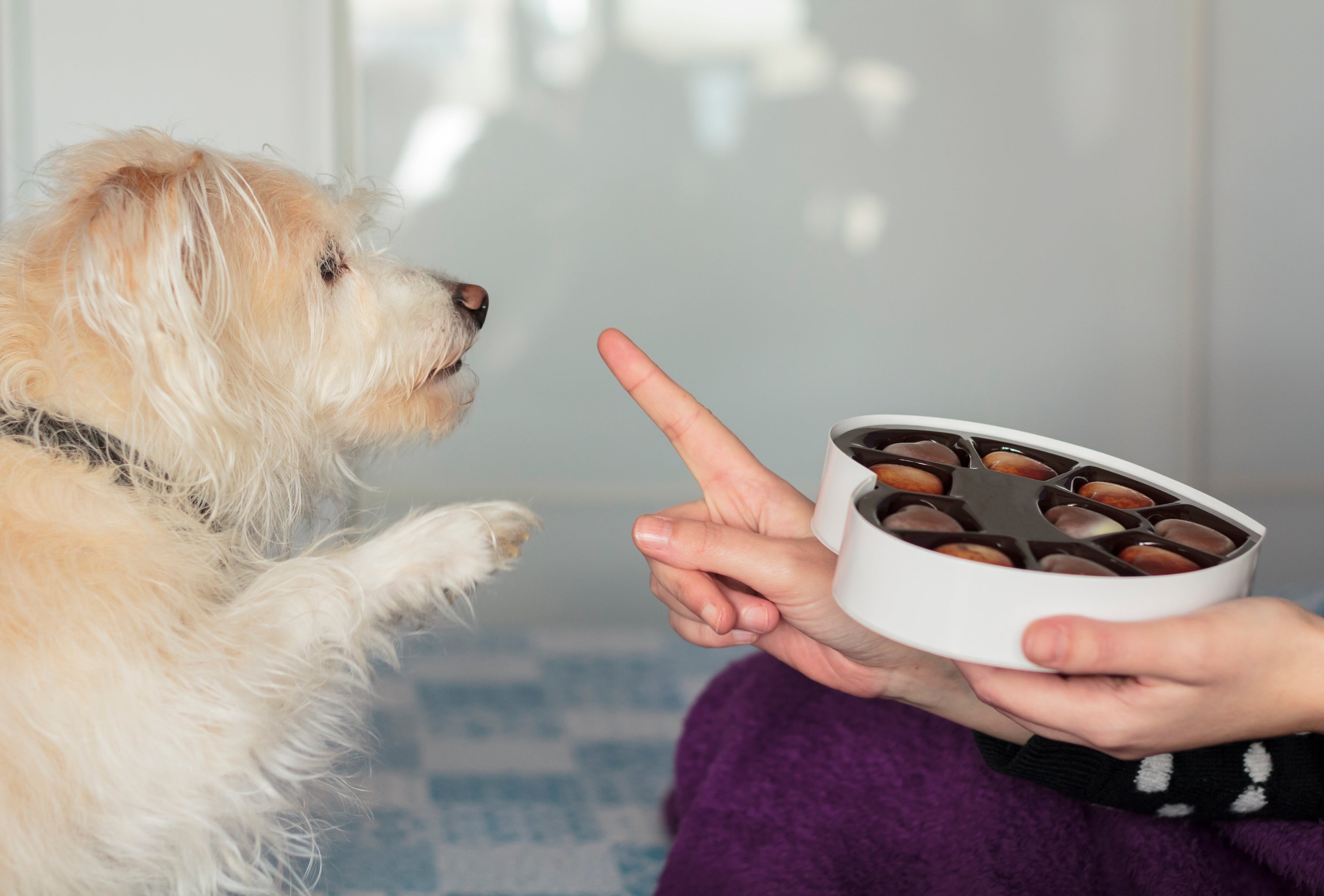If you're like us, you want nothing but the best for your furry companions. That includes making sure they have a safe and delicious diet. We all know that our canine pals are members of the family, and as much as we might want to share our snacks with them, some human foods can be downright dangerous for dogs. So, let's dive into the topic of toxic foods for dogs and explore some harmful human foods you should keep out of your pup's paws!
Foods That Can Be Doggone Dangerous:
We've all seen those puppy eyes begging for a bite of whatever we're enjoying, but certain foods can lead to serious health issues for our furry friends. From the well-known chocolate conundrum to the lesser-known grape disaster, it's important to be aware of what's on your plate and what's on the no-no list for your pup.
Chocolate Catastrophe:
Ah, chocolate—the ultimate comfort food for humans, but a canine food danger. Chocolate contains theobromine, which dogs metabolize differently than we do. While a little nibble might only lead to an upset tummy, larger quantities can cause vomiting, diarrhea, rapid heart rate, seizures, and worse. Keep the cocoa confections well out of reach!
Grapes and Raisins:
Who knew that such seemingly harmless fruits could be foods poisonous to canines? Grapes and raisins can lead to kidney failure in dogs, causing symptoms like vomiting, lethargy, and abdominal pain. So, when your pup gives you those puppy-dog eyes during snack time, opt for a pet-friendly treat instead!
Nutty Nightmares:
Nuts like macadamias and walnuts can spell trouble for your furry friend. Macadamias, in particular, can lead to weakness, vomiting, tremors, and even temporary paralysis. Let's keep the nuts in our trail mix and not in our canine's dish.
The Onion and Garlic Gaffe:
While these may be staple ingredients in our culinary creations, they are dangerous ingredients for dogs. Onions and garlic, whether raw, cooked, or in powdered form, can damage your pup's red blood cells and lead to anemia. Watch out for hidden sources of these ingredients in sauces and seasonings!
Dairy Dilemmas:
While a cheesy indulgence might be tempting to share, dairy products can lead to upset tummies and gastrointestinal distress in dogs. Many pups are lactose intolerant, so it's best to avoid these canine dietary restrictions.

Recognizing Toxic Foods for Dogs:
It's not just about the specific foods; it's about understanding the signs of canine reactions to certain foods. If your pup suddenly starts acting out of sorts after snacking on something new, it's time to consult the vet. Symptoms might include vomiting, diarrhea, excessive drooling, lethargy, tremors, or even seizures.
Pet-Friendly Diet Guidelines:
Now that we've covered the dangerous human snacks for dogs, let's focus on maintaining a pet-friendly diet. Opt for high-quality dog food that meets your pup's nutritional needs. And if you're tempted to share your plate, stick to safe options like lean meats, plain cooked vegetables, and dog-approved fruits.
Avoiding Food-Related Pet Emergencies:
Remember, prevention is the key to avoiding food-related pet emergencies. Keep those harmful human foods out of reach, securely store your pantry items, and educate your family and guests about what not to feed your pup. It's all about creating a safe environment for your furry friend to thrive.
As caring pet owners, it's our responsibility to ensure our dogs' safety and well-being, and that includes what they eat. By familiarizing ourselves with toxic foods for dogs, we can prevent canine food toxicity and offer our furry friends a pet-friendly diet that keeps them happy and healthy. So, the next time those puppy eyes plead for a snack, remember the list of foods to avoid giving dogs and opt for treats that are tail-waggingly good and safe! Your pup's health and happiness are worth every effort in the world of pet nutrition and safety.


